Thile’s farm in Bhutan: solar innovation as the continuation of indigenous beliefs
In the 21st century, the word “technology” is often used as if it were a tool with advanced technical functions designed to replace traditional methods of writing, communicating, cultivating fields, or preserving the food consumed. “Technology” takes on a savior tone when describing the history and evolution of societies, communities, and tribes around the world, as though, from a lofty perspective, it implies that these groups follow a set of superstitions of questionable value. Technologies are presented as the rupture with beliefs that must inevitably be cast aside to make way for systems considered revolutionary and fundamentally opposed to the visions shaped over time by custom, challenges, and tradition. Nothing could be further from the reality in the fields of Western Bhutan.
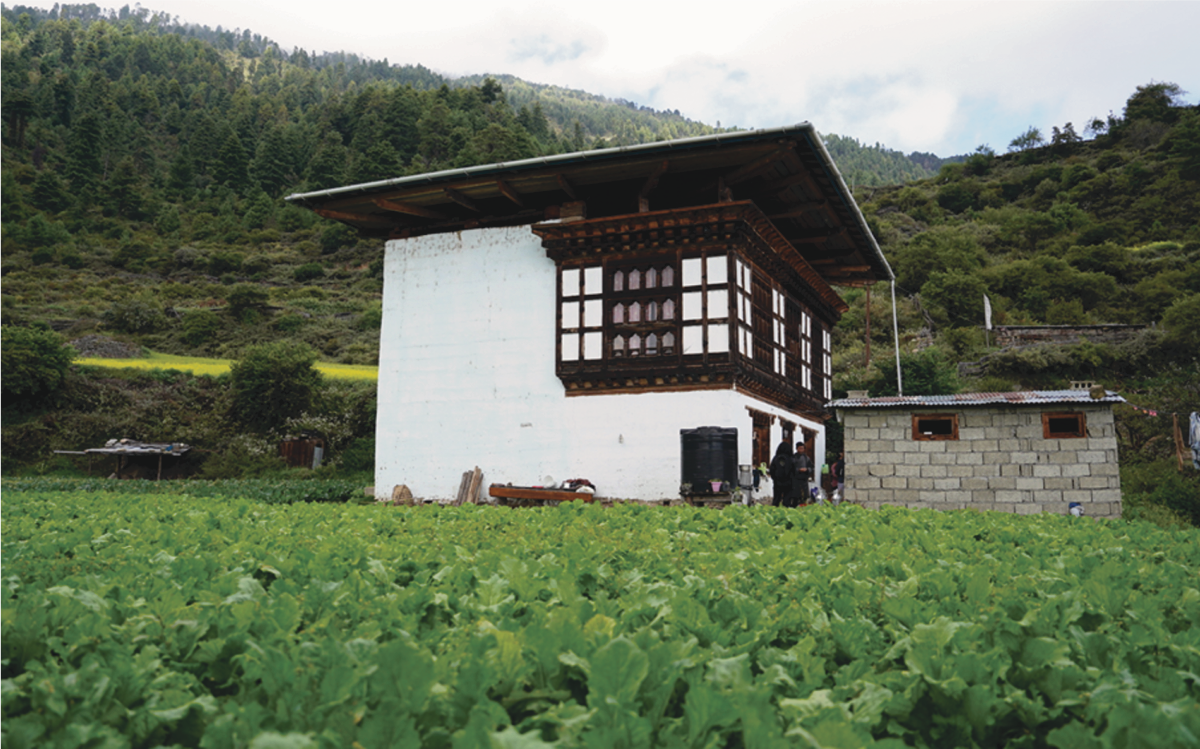
The story of Thile’s Farm calls for a redefinition of how the rural world and the productive mindset of its people are perceived. Here, those who remain firmly rooted in ancestral methods of working the land regard, with natural ease, the adoption of the most innovative solar technologies available on the global market. Their story demonstrates how cold storage represents not only an economic and sustainable approach to agriculture but is also viewed by these resilient communities as a continuation of the environmental principles upheld by millennia-old philosophies such as Buddhism.
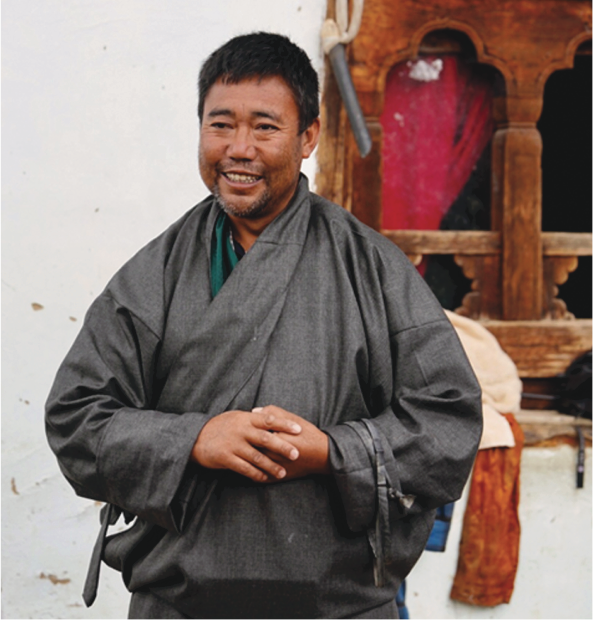
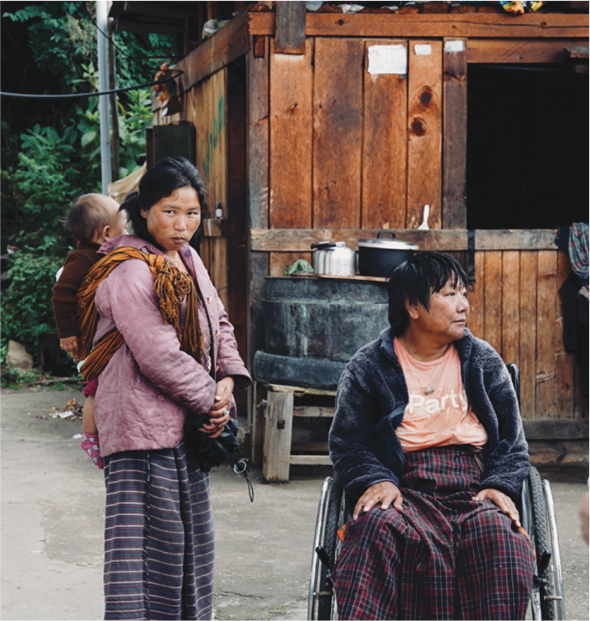
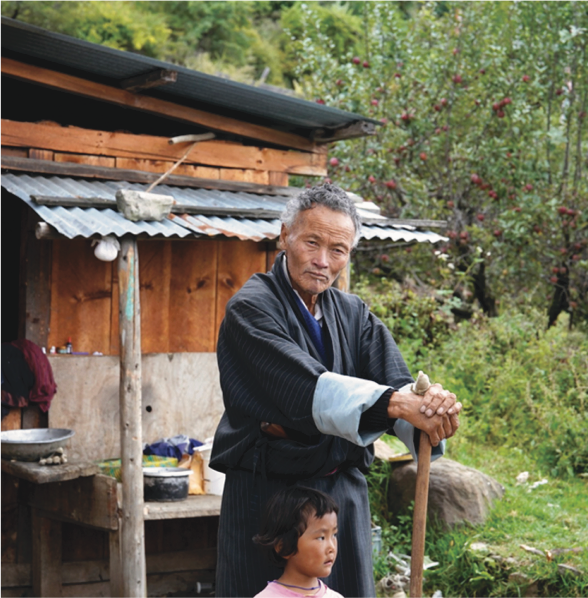
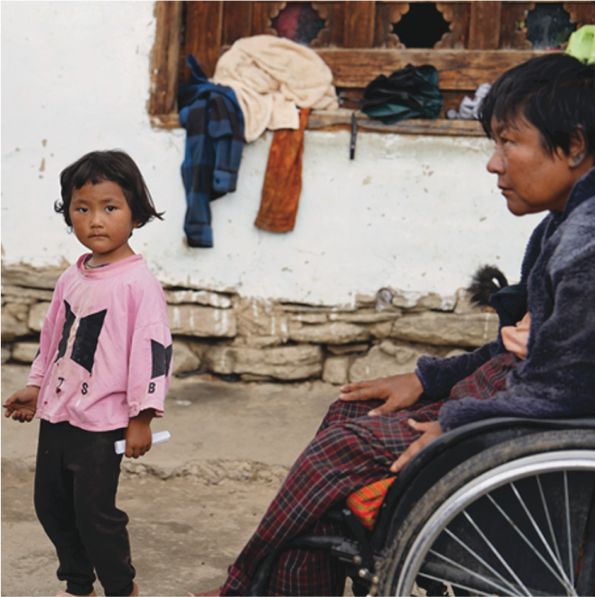
Legacy rooted in tradition and faith
In the serene hills of Dokar Gewog, just 1.5 hours from Paro, Thile works his farm with devotion, through long and extenuating hours. His spiritual connection with the rugged landscape surrounding his land reminds him to preserve two concepts his parents taught him: nature and family. Living in a traditional brick and wood house, shared by four generations, Thile moved into his wife’s family home after marriage, a Bhutanese custom to organize post-marriage residency. When asked if Bhutanese gender-based roles have been evolving over the past few decades, the entire family laughs as they listen to an apparently-absurd question: ’’Sir, women in Bhutan have always owned the lands.’’
Thile grows a variety of crops—cabbage, broccoli, cauliflower, potatoes, and apples—balancing the nutrition needs of his family with the demands of the land. While the farm provides sustenance, the financial returns remain modest, reflecting the struggles of smallholder farmers across Bhutan.
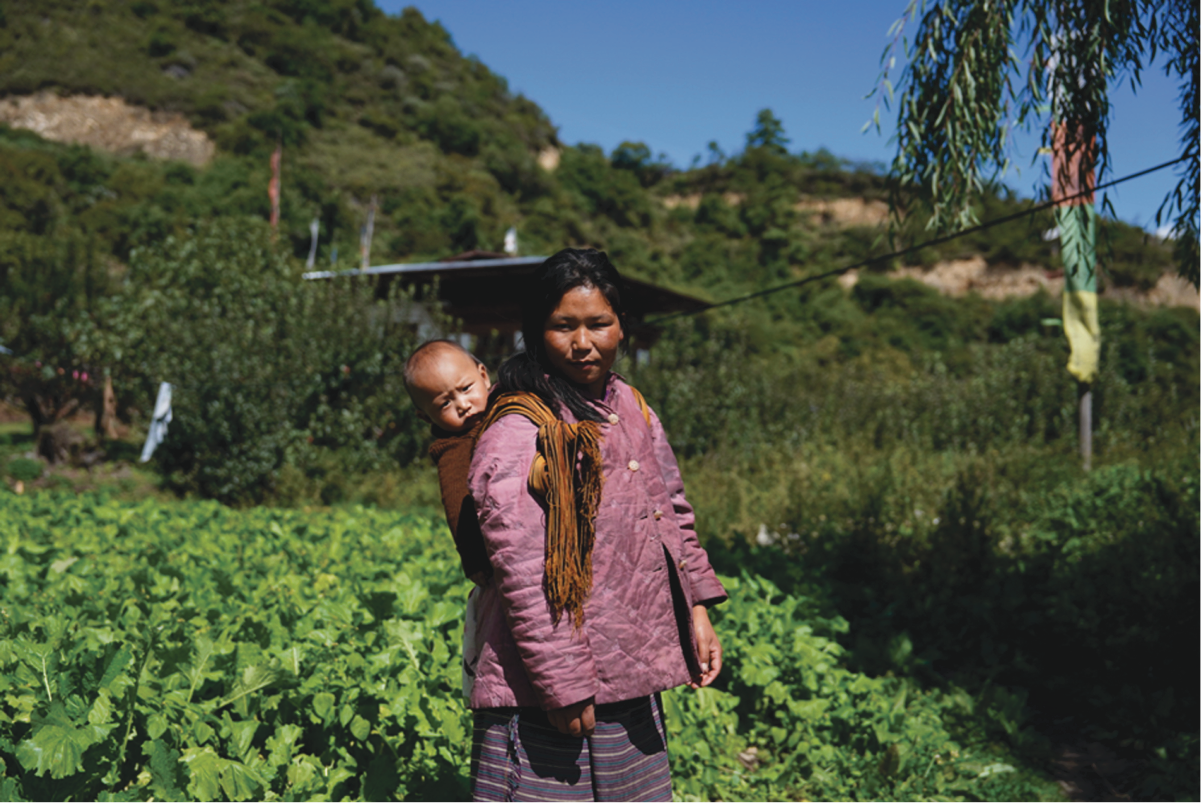
Faith is at the heart of Thile’s farming philosophy. He chooses to minimize pesticide use, relying instead on organic methods like cow dung as fertilizer. “We believe in God. We don’t commit the sin of killing pests,” Thile shares, gently tending to the soil. However, this deeply-rooted principle may appear counterproductive for his land—pests remain a persistent threat to crops, even more if unpredictable harvests hit the area.
Navigating farming challenges in Bhutan’s steep terrain
The mountainous topography of Bhutan sets a number of difficulties for Thile’s farming. Mechanized tools are impractical on such steep terrain, forcing Thile to rely on traditional, labor-intensive methods. These approaches, though aligned with his values of simplicity and sustainability, are time-consuming and physically demanding.
Adding to these challenges are the unpredictable effects of climate change. Unseasonal rains damage crops, while prolonged dry spells leave produce vulnerable to spoilage. “When it doesn’t rain, our crops get ruined,” Thile explains, pointing to makeshift apple containers where he stores his fruit. For apples, his method of tightly sealing them in buckets keeps them fresh for up to three months. However, this solution doesn’t work for more perishable crops like broccoli and cauliflower, which quickly spoil during peak seasons. The loss is not just financial; it is a source of emotional strain, knowing the hard work he does to sustain his family will be wasted.
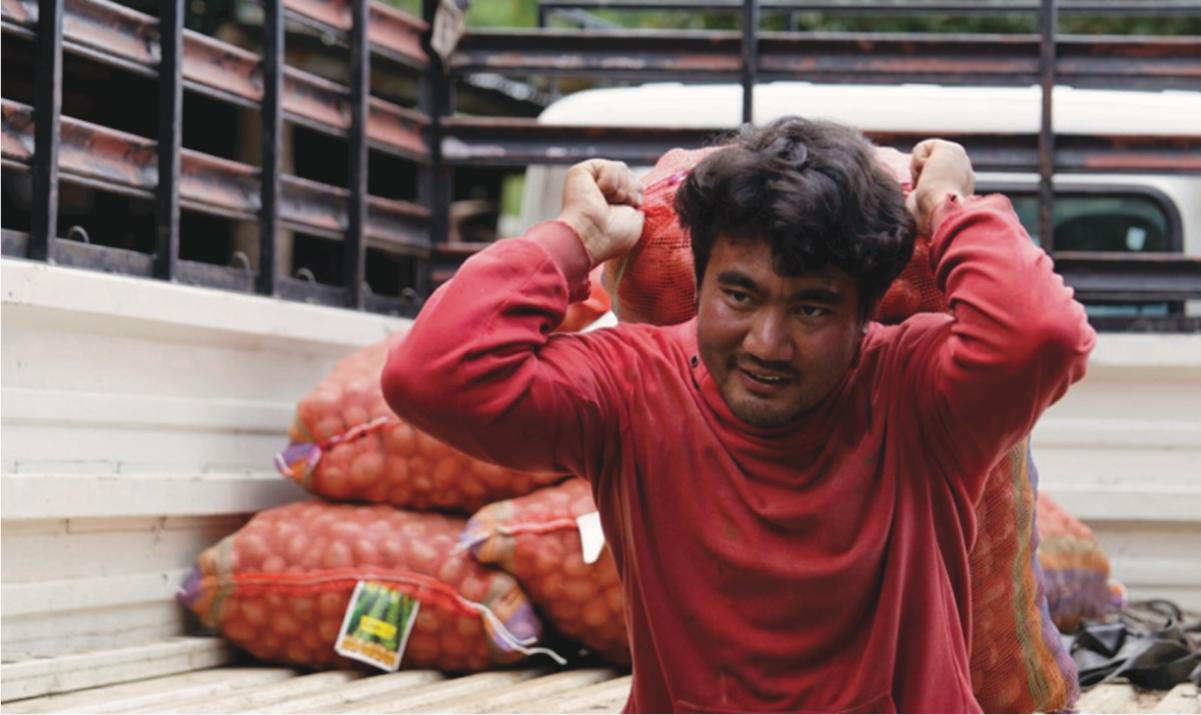
Solar Cold Storage: a solution that preserves both crops and values
The introduction of solar-powered cold storage units offers a lifeline to Thile and farmers like him. Through a government initiative supported by the International Solar Alliance, solar cold storage units have been installed in Paro and Zhemgang, each with a capacity of 5 metric tons (MT). These units are physical containers that use cold to preserve perishable crops like broccoli and cauliflower for extended periods, allowing farmers to sell their produce when market prices are favorable and obtain a larger profit.
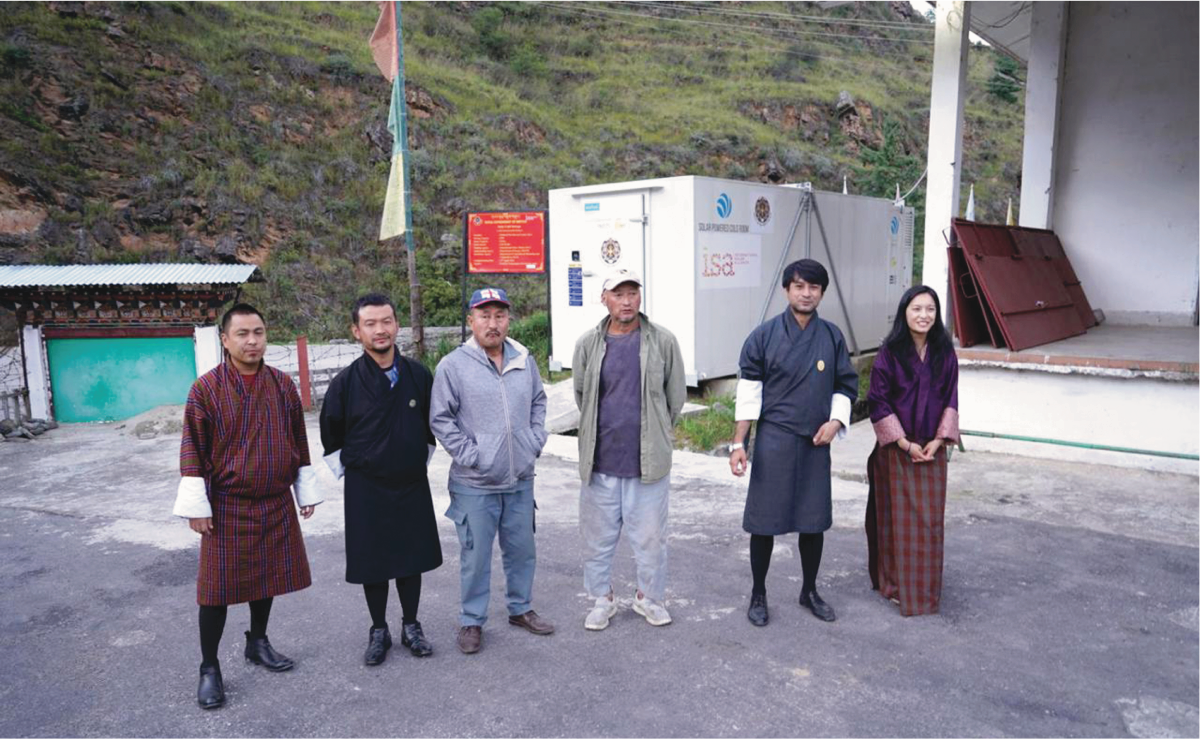
 Global warming, climate change, glaciers melting, glacier melting, we don’t have sufficient water from the mountains. Now solar has come as a big substitute to all those things (Honorable Minister of Energy and Natural Resources Lyonpo Gem Tshering).
Global warming, climate change, glaciers melting, glacier melting, we don’t have sufficient water from the mountains. Now solar has come as a big substitute to all those things (Honorable Minister of Energy and Natural Resources Lyonpo Gem Tshering).
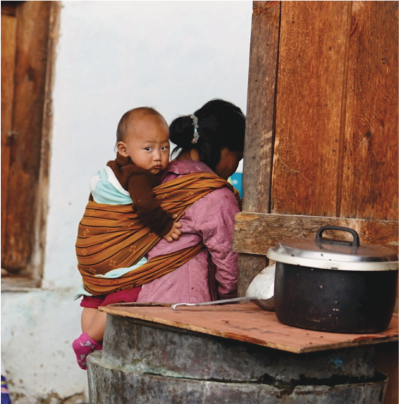
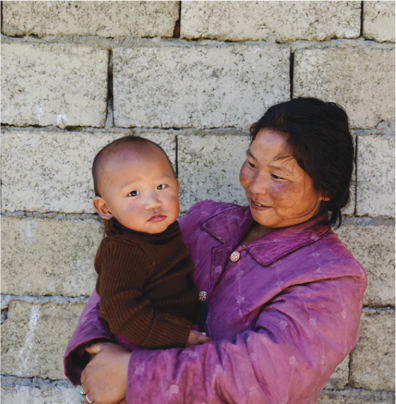
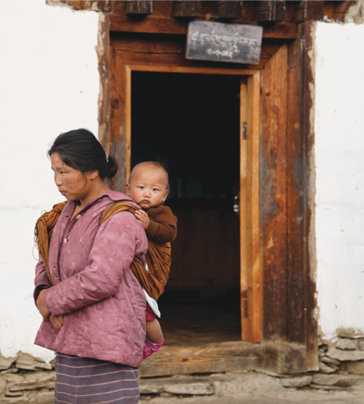
For Thile´s family, this innovation resonates deeply. “If we could store everything in one place, we wouldn’t have to worry about our crops spoiling,” they say with quiet hope. Solar energy, for Thile, is a practical solution but also a gift of nature that aligns perfectly with his faith and his values of sustainability.
The solar cold storage units provide an eco-friendly alternative to traditional methods, helping smallholder farmers reduce post-harvest losses while improving economic stability. At the same time, they contribute to Bhutan’s carbon-negative status, a core pillar of the nation’s environmental vision and an achievement the government prides itself. ‘’Global warming, climate change, glaciers melting, glacier melting, we don’t have sufficient water from the mountains. Now solar has come as a big substitute to all those things’’ states Honorable Minister of Energy and Natural Resources Lyonpo Gem Tshering.
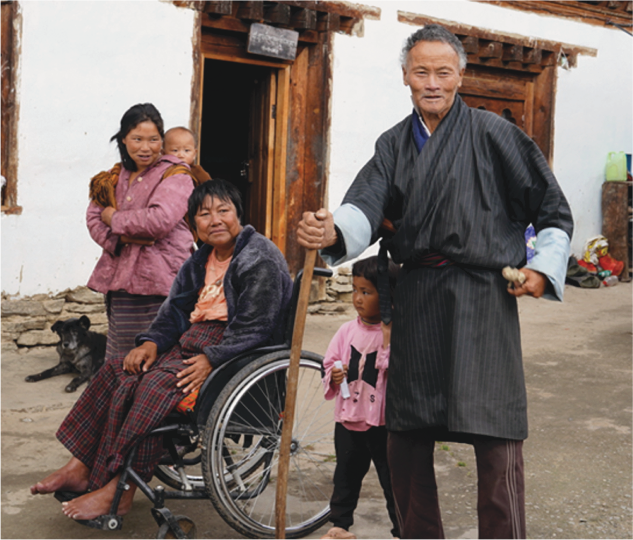
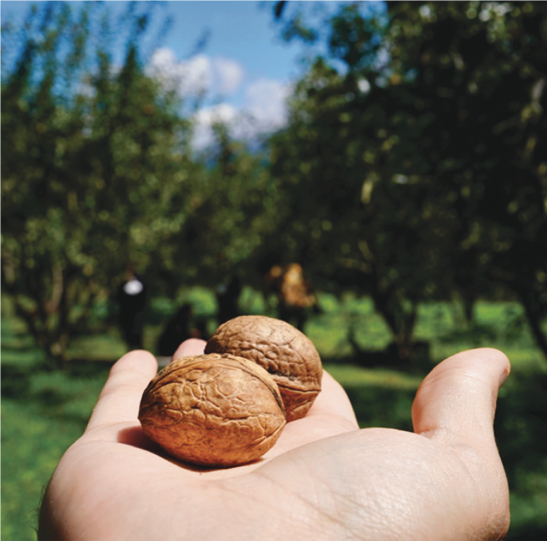
A future rooted in family, sustainability, and hope
Despite the challenges of modern farming, Thile’s optimism remains alive. His faith in the land, his family, and the potential of sustainable solutions like solar powered cold storage gives him hope.
Thile’s story is a powerful testament to the balance between tradition and innovation, faith and technology. With tools like solar cold storage, farmers like Thile can thrive amidst the challenges of a changing world. These solutions empower Bhutan’s smallholders, helping them preserve their values while securing a sustainable future for their families and communities. Ultimately, stories like Thile’s reflect Bhutanese farmers’ path, where its people factor in their contribution to Gross National Happiness by respecting sustainability and the focus on renewable energies as the means to produce more quantitatively, but also to harm the earth less. ‘’After all, the earth is home to my family’’ says Tyle with a smile.
